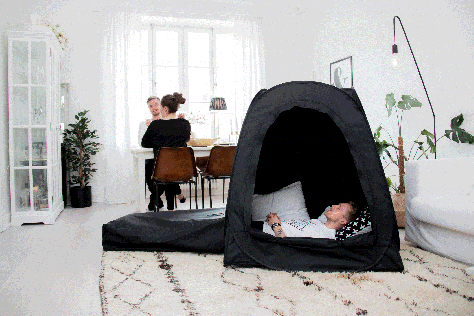Naps get a bad rap – especially when they happen at work. But research suggests that kind of thinking is completely antiquated.
Extra sleep can help boost your memory, reduce stress and enhance your sex life, research suggests. Plus, there’s the whole “naps feel awesome” part.
So here’s the scientific support you need to feel 100% comfortable spending a little extra quality time with your pillow today.

1. You’re probably sleep deprived right now
According to the National Sleep Foundation recommendations, you should be getting seven to nine hours of sleep. If you’re like most people, you fall shy of that target: On average, South Africans only get just over six hours of sleep a night – the lowest average sleep time in the world according to a report published by sleep tracking app, Sleep Cycle, in 2015.
“If getting enough sleep isn’t possible, then napping is the next best thing,” says Dr Abid Malik, medical director of the Sleep Disorder Centre at Orlando Health-South Seminole Hospital.
2. It will make you a genius
A team of German neuropsychologists found that napping after learning something can make your memory of that information five times better than if you had stayed awake afterward.
The researchers say your brain’s ability to go into a tranquil state during sleep is linked to your ability to remember. Mandatory naptime at the office? That’s just good management.
Read more: Cardio sessions may literally make your brain bigger
3. It only takes a few minutes
A 15- to 20-minute power nap is all you need to wake up feeling like a new man, says Dr Malik. The chemicals in our brain rebalance as you sleep, he says, making you feel more alert – even if you only doze for a few.
4. It keeps you from pigging out
The less you sleep, the more likely you are to gain weight, a Stanford University study found. Researchers discovered that a lack of sleep triggers your body’s production of the hormone gherkin, which makes you want to eat more, and lowers levels of the hormone leptin, which tells you when you’re full.

5. It’s the laziest form of stress management
Stress sends your blood pressure through the roof – which can cause heart disease, stroke and even erection problems. But research from Allegheny College suggests that catching a daytime snooze may help your body handle anxiety.
Scientists let half of the study participants doze, and then gave them all a tough exam. The nappers had lower blood pressure after the test than the people who had stayed awake all day. Researchers think shuteye speeds up your heart’s ability to recover from stress, helping your blood pressure to go down in the process.
Read more: 11 ways you can conquer your junk food cravings when you’re stressed
6. You’ll be a better boyfriend
Arguing with your girlfriend all the time? Check your sleep habits. Research from the University of California, Berkeley found that just one night without rest can make arguments with your partner worse. Why? You’re less accurate at reading your partner’s emotions and more likely to be cranky all day.
7. It helps you recover from an all-nighter
Lack of sleep can leave you feeling stressed out and can even make you sick, research finds. But you’re not totally screwed after you pull a late night – as long as you catch some mini-snoozes.
A study published in the Journal of Clinical Endocrinology & Metabolism found that men who took two half-hour naps the day after getting just two hours of sleep were able to reset their stress-hormone levels, leaving them less frazzled and healthier than those who never napped.
8. It protects your ticker
Just one night of bad sleep can make your blood vessels less flexible, according to a British study. That can raise your risk of heart disease, which can, well, kill you. Scientists think that when your brain is wiped, it signals to your blood vessels to become stiff and unresponsive. The good news: Study participants’ vessels went back to normal after getting enough rest.
Read more: Is napping good or bad for you?
Click here some more full details http://bit.ly/2CNC1vz for remaining benefits.
We all know supervisors who penalize anyone who nods off. I have known of one person who died, as a result of her superior’s actions, so napping goes beyond just being a good health practice. It is a vital correction to the sweatshop mentality that persists, even now.
LikeLiked by 1 person
I would be surprised if I woke up feeling like a new man but I do believe in naps and I do feel like a new woman!
LikeLike
Thank you ! Love all this info 😊
LikeLike
It may make you a better boyfriend, but probably only if you’re a boy to start with.
LikeLike
Don’t nap, but do get my 8 hours. Lots of good points and well written.
LikeLiked by 1 person